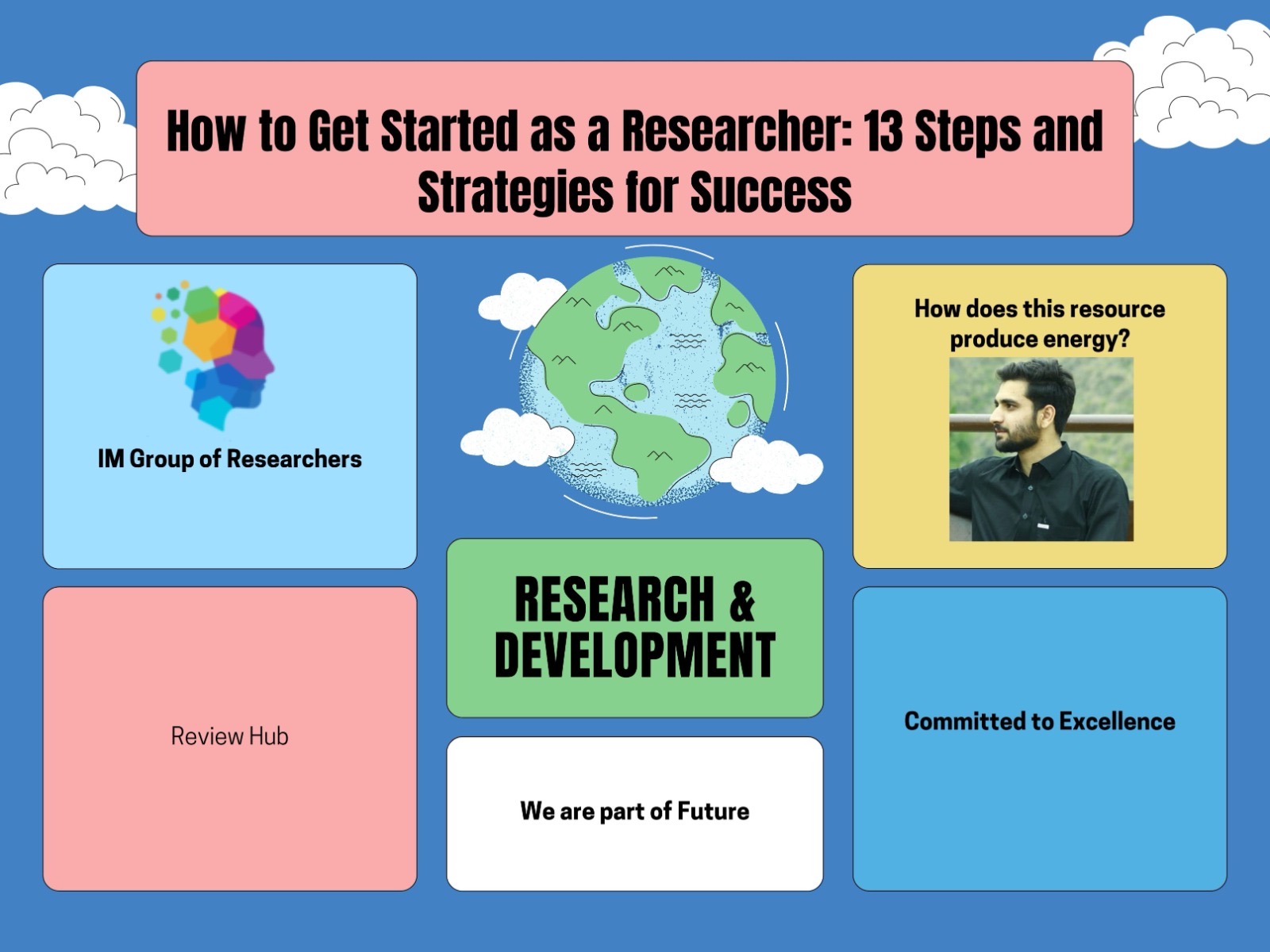How to Get Started as a Researcher: 13 Steps and Strategies for Success
Starting as a researcher can be an exciting and rewarding journey. Whether you’re interested in scientific research, social research, market research, or any other field of inquiry, here are some steps to help you get started. So, here is How to Get Started as a Researcher: 13 Steps and Strategies for Success.
Authors:
1- Izaz Ul Islam

LinkedIn: Click here to see Izaz’s profile
1. Define Your Research Interests:
• Identify the area or subject you are passionate about and want to explore through research.
• Consider your academic background, personal interests, and career goals when choosing your research focus.
2. Set Clear Goals and Objectives:
• Define what you want to achieve through your research. What are your specific research questions or hypotheses?
• Establish the scope and boundaries of your research project.
3. Literature Review:
• Conduct a thorough literature review to understand the existing research in your chosen field.
• Identify gaps in the current knowledge and areas where your research can make a meaningful contribution.
4. Choose Your Research Methodology:
• Determine the research methods and techniques you will use (e.g., surveys, experiments, interviews, data analysis).
• Consider the feasibility and practicality of your chosen methods within your resources and timeframe.
5. Design Your Research:
• Create a research plan or proposal outlining your research design, methods, and timeline.
• Obtain any necessary approvals or permissions, especially for human subjects research.
6. Gather Data:
• Collect data according to your research design.
• Ensure data accuracy and consistency, and keep detailed records.
7. Analyze Data:
• Analyze your data using appropriate statistical or analytical techniques.
• Interpret the results and draw conclusions based on your findings.
8. Communicate Your Research:
• Write a research paper or report summarizing your findings, following the conventions of your field.
• Consider presenting your research at conferences and submitting it for publication in academic journals.
9. Seek Guidance and Mentorship:
• Connect with experienced researchers or mentors who can provide guidance and support.
• Collaborate with colleagues or professors who share your research interests.
10. Stay Informed:
• Keep up with the latest developments in your field through academic journals, conferences, and networking.
• Continuously refine your research skills and stay open to new ideas.
11. Secure Funding:
• Explore funding opportunities from research grants, scholarships, or institutions to support your research endeavors.
12. Maintain Ethical Standards:
• Adhere to ethical guidelines and principles in your research, especially when working with human subjects or sensitive data.
13. Adapt and Learn:
• Be prepared to adapt your research approach as you encounter challenges or unexpected findings.
• Embrace a growth mindset and be open to learning from both successes and failures.
Remember that research is an iterative process, and it may take time to build your expertise and make significant contributions to your field. Stay persistent, be patient, and don’t hesitate to seek help or collaborate with others when needed.
Also read: How To access high quality research articles
Follow us on Facebook – Click Below

